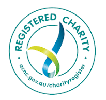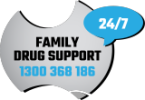| Donate | Become a Member | Resources |
SUPPORT LINE 24/7
1300 368 186 |
Dealing With Conflict
-
Conflict
There is nothing unusual, unnatural or to be feared about conflict. It is a natural part of all human relationships. We are all different, we have different personality types, have different ways of looking at things, want different things and we have different likes and dislikes. With people we live with, work with, are friends with and have relationships with when differences occur there is almost certainly going to be conflict. It would be odd for there not to be conflict in any of these circumstances.It is not that there is a disagreement that matters, it is how it is handled that can be either positive or negative. It can be dealt with destructively, abusively and disrespectfully OR differences can be resolved constructively and respectfully.
- Conflict And Substance Use
Disagreement is common in families where there is drug and alcohol use for various reasons:- The drug user's agenda is often very different to other family members
- Family members have different ideas to drug users on how to spend money – drugs vs other essentials
- Established patterns of conflict are often stressful, frustrating and non-productive
We get many telephone calls regarding parents 'waiting up' to confront a drug or alcohol user who has been out getting high. It may be better to wait and address the issue later. It is never a good idea to deal with things:- Conflict Involves Two Parties
Conflict involves two parties but others often get caught up in creating persecution, victim and rescuers.When two people have a transaction – including conflict- it involves both parties. Both people create what happens, each influences the other and is affected by the other – often a third party gets involved creating a negative triangle – usually exacerbating the conflict and making matters worse, for example:Dad: "You're stoned again – I've told you not to use drugs in this house!"
Son: "What I do is my business – why can't you leave me alone?"
Mum: "You shouldn't shout at your dad, he is only trying to help."
Son: "Keep out of this – you're always butting in where you're not wanted."
Mum: Starts crying.
Dad: "You've done it again! You're always upsetting your mother."
Son: "Just fuck off and leave me alone."- Coping With Other People's Anger
If we react to others defensively by attacking or withdrawing, conflict often increases. If, instead, we respond assertively we can help to bring the conflict to a level at which emotions can be reduced and negotiating then becomes possible.Saying "enough" or "I don't want your anger". Firmly putting our hand up as if stopping traffic. Everyone has the right to say to someone else that they are angry with them. No one has the right to be abusive and aggressive with someone else.- Unhealthy Ways Of Dealing With Conflict
Anger is a natural human emotion and one that can be, in some circumstances, an understandable and even healthy way of reacting. However, it can also be potentially dangerous to ourselves and others.Therefore there are many unwritten social rules inhibiting anger to control these risks. We typically swallow these rules whole as children and then have beliefs such as "it is unreasonable to be angry", "people who are angry are out of control" or "it's bad to be angry".- Ways To Positively Express And Resolve Anger
The following steps can help you recognise an express your anger:- Recognise when you are angry – shouting in a loud and angry voice, "I am not angry", is not recognising your anger
- Accept that it is OK and human to get angry
- Identify the source of the anger – who or what is causing the anger?
- Understand why you are angry
- Identify the feelings that your anger is masking
- Find positive and effective ways to express your anger and release tension
- What Happens To Unresolved Anger?
Unexpressed anger contributes to physical and emotional tension. The expression of anger releases that tension. Without healthy ways to express anger, unexpressed anger builds up and can result in physical symptoms such as headaches, body tension, indigestion and anxiety.There are those who claim they 'don't get angry'. Outwardly they may appear calm and unfazed. Again, this could be a result of witnessing negative expression of anger in their past. However, this tension still exists and builds up, adding to the emotional 'gunnysack'. A seemingly trivial event can trigger an explosive expression of anger.
Family Drug Support Australia
Supporting families and friends of people who use substances as well as bereaved families in Australia.
SUPPORT LINE (24 Hours - 7 Days)
Phone: 1300 368 186Meetings & Events
Organisation

© Family Drug Support Australia / PO Box 7363 Leura NSW 2780
ABN 49 081 764 258 / Privacy Policy / Website by Collaborative
- Conflict And Substance Use

